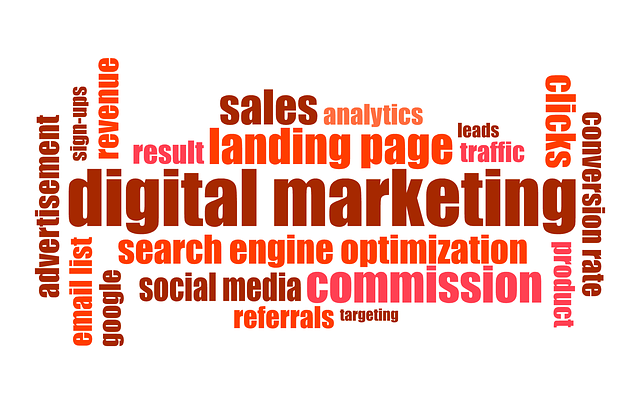AI audits are becoming essential as AI drives industry growth, offering critical safeguards for safety standards in development and deployment. With AI revenue projection tools forecasting significant market expansion, robust auditing mechanisms are vital to monitor AI systems across data quality, algorithmic fairness, privacy, and ethical aspects. These audits help identify and mitigate risks, biases, and non-compliance, promoting transparency and accountability crucial for public trust in AI technologies. AI revenue projection tools enhance audit efficiency through machine learning, automating data analysis, and providing accurate financial projections based on historical data, market trends, and business dynamics. Effective AI audits ensure systems adhere to safety protocols, regulatory standards, and ethical guidelines, fostering continuous improvement, refining practices, staying ahead of regulations, and harnessing AI's full potential while minimizing risks.
In the rapidly evolving landscape of artificial intelligence (AI), ensuring compliance and safety procedures is paramount. AI audits play a crucial role in verifying that AI systems adhere to ethical standards and regulatory frameworks. This article delves into the importance of these audits, focusing on understanding the need for compliance mechanisms and exploring AI revenue projection tools that streamline audit processes. Additionally, it offers practical insights into implementing effective AI audit procedures for enhanced operational safeguards.
- Understanding AI Audits: The Need for Compliance and Safety Ensuring Mechanisms
- AI Revenue Projection Tools: How They Facilitate Efficient Audit Processes
- Implementing Effective AI Audit Procedures for Enhanced Operational Safeguards
Understanding AI Audits: The Need for Compliance and Safety Ensuring Mechanisms

AI audits are becoming increasingly essential as artificial intelligence continues to transform industries worldwide. These audits aren’t just about ensuring compliance; they serve as critical safeguards for maintaining safety standards in AI development and deployment. As AI revenue projection tools predict substantial growth, it’s imperative to have robust mechanisms in place to monitor and evaluate AI systems. This includes assessing data quality, algorithmic fairness, privacy protections, and the overall ethical implications of AI technologies.
By implementing AI audits, organizations can identify potential risks and biases that may go unnoticed otherwise. These audits allow for continuous improvement, ensuring that AI applications adhere to regulatory guidelines and ethical frameworks. Moreover, they foster transparency and accountability, which are vital for building public trust in AI systems, especially as we navigate an increasingly automated future.
AI Revenue Projection Tools: How They Facilitate Efficient Audit Processes

AI revenue projection tools are revolutionizing the way audits are conducted, offering unprecedented efficiency and accuracy in tracking compliance and safety procedures. These advanced technologies leverage machine learning algorithms to analyze historical data, market trends, and business dynamics, providing valuable insights into future financial performance. By integrating AI revenue projections into audit processes, organizations can anticipate potential risks and opportunities, enabling them to make informed decisions that drive growth and mitigate losses.
The facilitation of efficient audit processes through AI revenue projection tools is multifaceted. These tools automate data collection and analysis tasks, reducing the time and resources typically required for manual audits. They also identify anomalies and inconsistencies in financial data, helping auditors focus on high-risk areas. Moreover, AI projections can be customized to specific industry standards and regulatory requirements, ensuring compliance with evolving norms. This level of precision and adaptability not only streamlines audit procedures but also enhances the overall accuracy and reliability of financial reporting.
Implementing Effective AI Audit Procedures for Enhanced Operational Safeguards

Implementing effective AI audit procedures is paramount for organizations aiming to enhance their operational safeguards. These audits serve as a robust mechanism to ensure that AI systems adhere to established safety protocols, regulatory standards, and ethical guidelines. By systematically evaluating data sources, algorithms, and decision-making processes, AI revenue projection tools integrated into these audits can uncover potential biases, inaccuracies, or unethical practices. Organizations can then take proactive measures to mitigate risks and improve the overall reliability of their AI operations.
Moreover, regular AI audits foster a culture of continuous improvement. They provide valuable insights into areas that require refinement, enabling organizations to stay ahead of evolving regulatory landscapes and market expectations. Through these processes, companies can strengthen their data governance practices, maintain public trust, and ultimately harness the full potential of AI while minimizing associated risks.
AI audits are transforming how industries ensure compliance and maintain safety standards. By leveraging AI revenue projection tools, organizations can streamline audit processes, making them more efficient and effective. Implementing robust AI audit procedures not only enhances operational safeguards but also fosters trust in AI technologies, ensuring their responsible and safe integration into various sectors.
